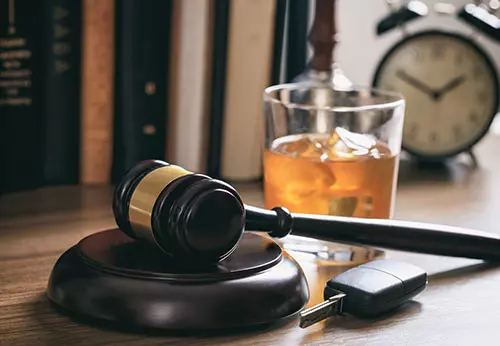You’re probably familiar with the term “DUI” or “DWI”, which most people think of as a blanket term for all charges related to drinking and driving. However, in Hudson Valley, New York, things aren’t quite that simple.
New York is one of the toughest states in the country on impaired or intoxicated driving. As a result, the laws in New York that govern impaired or intoxicated driving are rather complex.
While most states only have one or at most a few categories of charges defining this sort of offense, New York State has five:
DWIs and Aggravated DWIs are fairly standard and meet the “drunk driving” definition in most people’s minds. In this article, we’re going to focus on the lesser-known three charges in this list: Alcohol-DWAI, Drug-DWAI, and Combination DWAI.

To understand the difference between DWAI charges and DWI/DUI charges, you just have to think of the difference between the key terms involved. While the key term for a DWI/DUI is “intoxicated”, the key term for a DWAI is “impaired.”
In New York, “impaired” is a less severe category legally than “intoxicated”. To be charged with a DWI, you have to have to be considered legally intoxicated, with a BAC (blood alcohol content) of at least .08%. For an Alcohol-DWAI, on the other hand, you merely have to be deemed impaired, with a BAC of more than .05% but less than .07%.
In addition, DWAIs are specific to the substance that is impairing you, and account for drugs (both illicit and prescription) in addition to alcohol. This means that unlike DWIs, you may be charged with a DWAI without ingesting any alcohol at all. This would be referred to as a Drug-DWAI. You may also be charged with a Combination-DWAI, which means that your impairment is due to both alcohol and drugs.

DWAIs are generally considered less serious than DWIs and are classified as violations rather than full crimes. However, they still carry significant consequences for those convicted, especially when it comes to Drug-DWAIs and Combination-DWAIs. The potential penalties for DWAIs include:
Like DWIs, repeated DWAIs can lead to more serious potential consequences. Third-offense Drug-DWAIs, for example, are felonies that carry potential penalties including fines of up to $10,000 and prison terms of up to 7 years.
Also like DWIs, the consequences of a DWAI conviction can expand far beyond the courtroom. The extra-legal consequences of a DWAI conviction may include:
While this may seem overwhelming, and while DWAI charges are serious, getting a DWAI charge in Hudson Valley, NY does not have to completely upend your life. There are DWAI lawyers out there who are ready to fight for your future.
If you or a loved one is facing DWI charges in Hudson Valley, New York, Attorney Randall Inniss and the team at The Inniss Firm, PLLC, is here to help. Having spent 22 years as a NY State Trooper, Attorney Inniss has the insider knowledge that you need to help you beat your charges and move on with your life. Reach out today for a free consultation on your case.
If You Have Been Arrested, Time Is Precious So Don't Delay Or
Wait! Call Us Today At (845) 533-0265